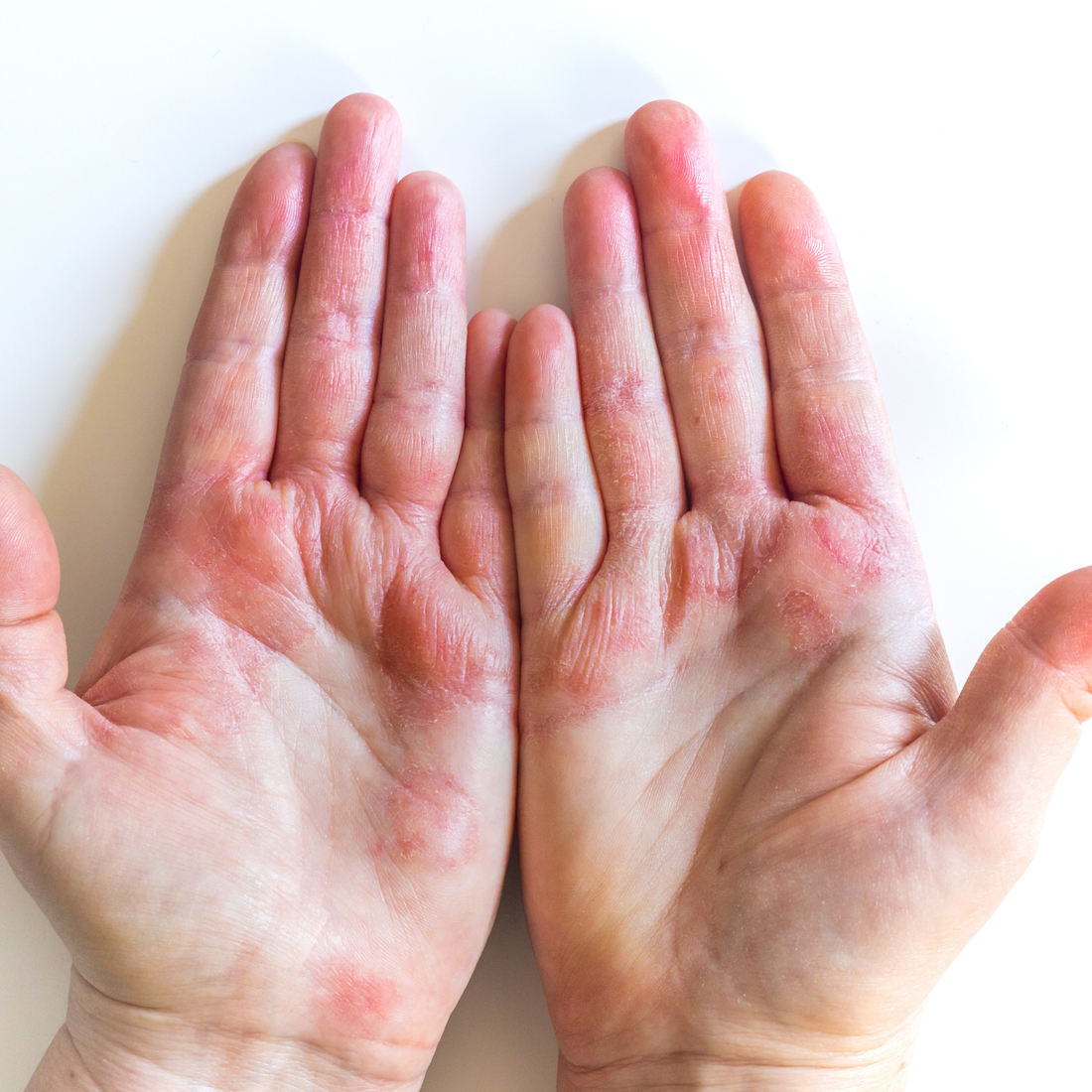
Eczema (also known as atopic dermatitis) is a chronic inflammatory skin condition characterised by red, itchy, dry patches of skin. It tends to flare up periodically. While its exact cause is multifactorial, common contributing factors include:
- Genetic predisposition (a family history of eczema, asthma, or allergies)
- A weakened skin barrier, leading to moisture loss and greater sensitivity
- Immune dysregulation and allergic responses
- Environmental triggers (temperature changes, detergents, harsh soaps, allergens, stress)
- Gut-skin connection and internal inflammation
Because eczema often involves both skin barrier disruption and internal imbalances, a holistic approach - targeting both external care and internal support - can offer greater relief.
Gut-Friendly Foods & Internal Support for Eczema
Emerging evidence suggests that gut health plays a role in skin inflammation. Supporting the gut can help manage internal triggers that exacerbate eczema.
Foods & Nutrients That May Help
- Probiotic-rich foods: Yogurt, kefir, fermented vegetables (sauerkraut, kimchi), miso. These may support a balanced microbiome.
- Prebiotic fibres: Foods like onions, garlic, leeks, asparagus, bananas, oats - they feed beneficial gut bacteria.
- Omega-3 fatty acids: Found in flaxseeds, chia seeds, walnuts, and fatty fish (e.g. salmon) - known for anti-inflammatory effects.
- Antioxidant-rich fruits and vegetables: Berries, leafy greens, sweet potatoes, carrots - to support overall immune health.
- Foods rich in zinc, vitamin D, and vitamin E: These micronutrients help skin repair and immune balance.
- Hydration & good fats: Drinking enough water and including sources of healthy fats (e.g. olive oil, avocado) can support skin moisture and integrity.
Foods & Items to Minimise or Monitor
- Highly processed foods, refined sugars, and high amounts of dairy (if you’re reactive)
- Common allergens (e.g. eggs, nuts, dairy, wheat) - consider trial elimination under supervision
- Excessive spicy or acidic foods if they trigger your symptoms
- Alcohol and caffeine in excess, which may dehydrate or aggravate inflammation
Lifestyle & Habits That Support Gut and Skin
- Manage stress: chronic stress can exacerbate eczema. Mindfulness, yoga, breathwork, or even short pauses can help
- Sleep quality: good rest supports immune modulation and repair
- Regular gentle movement: encourages circulation and lymphatic drainage
- Avoid overuse of antibiotics unless necessary (they can disrupt gut flora)
- Consider periodic detox support, such as increasing soluble fibres or gentle herbal support (under guidance)
Ayurvedic-Inspired Tips to Support Eczema
Ayurveda sees skin as a reflection of inner balance or imbalance, particularly of the Pitta (heat) and Vata (dryness) doshas. Here are some gentle Ayurvedic-inspired practices that many adopt for skin health:
- Cooling, calming diet: Focus on foods that pacify Pitta - coconut, cucumber, melons, coriander, and aloe vera
-
Herbal supports:
• Neem - known to support skin health
• Turmeric - anti-inflammatory
• Manjistha - often used for skin purification
• Aloe vera internally or topically (gel) - Oil internal-external balance: Use light, soothing oils (e.g. coconut, sesame with herbs) for skin massage (Abhyanga) to nourish and calm
- Regular self-massage (Abhyanga): gently massaging warm oil into skin can improve circulation and promote relaxation
- Daily routine (Dinacharya): maintaining consistency in wake/sleep times, eating, cleansing, self-care
- Avoid excessive heat, spicy or sour tastes, alcohol, and overexertion, which may aggravate Pitta
Remember, Ayurvedic approaches complement conventional care; always consult a qualified Ayurvedic practitioner or healthcare provider before starting new herbs or internal practices.
Why Our Balms Can Be Beneficial for Eczema-Prone Skin
Our range of balms are well-positioned to support eczema-prone skin by focusing on natural, gentle, and skin-nourishing formulations. They are dermatologist‑approved, clinically tested and designed to soothe, protect, and restore compromised skin barriers.
Here’s how they could help:
- Deep moisturisation & barrier repair: Forms a protective, emollient layer that reduces transepidermal water loss and shields the skin from irritants
- Gentle & natural ingredients: Less risk of harsh chemicals or irritants that might provoke flare-ups
- Multi-use convenience: Multi-purpose, making them useful for localised or widespread patches
- Complementary to daily routines: They can be layered over or under treatments, used during flare-ups, or for daily maintenance
Check out our website for more details and explore the collection!




